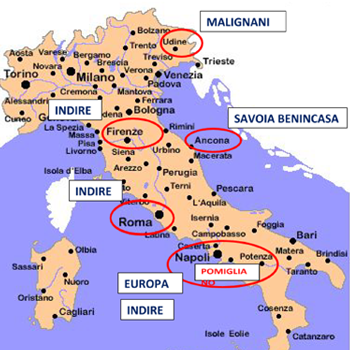
How MLTV Supports Transformative Learning in Teachers
PUBLISHED:AUTHORS: Carin Aquiline and Mara Krechevsky
Resource Summary
How can teaching and learning extend beyond the passive transmission of knowledge from teachers to students, to engage and inform others in and outside the classroom? How can educators shift the balance in classrooms to include a focus on creating as well as conveying knowledge, culture, and values? These were the overarching questions that Project Zero (PZ), a research center at the Harvard Graduate School of Education, and researchers from the Istituto Nazionale Documentazione Innovazione Ricerca Educativa (Indire)—the national public research institute responsible for innovation and dissemination of best practices in Italian public schools—investigated in a recent18-month collaboration called Making Learning and Thinking Visible in Italian Secondary Schools or MLTV.
MLTV began in 2017 in order to explore how two long-standing Project Zero frameworks—Making Learning Visible (Giudici et al., 2001; Krechevsky et al., 2013) and Visible Thinking (Ritchhart et al., 2011)—could be adapted to support Italian public secondary school teachers in their move away from transmission-based teaching. Fifteen teachers, from three Italian secondary schools in an innovative network called Avanguardie Educative, acted as co-researchers2 with PZ and Indire to: 1) support the creation of cultures of learning, thinking, and understanding in Italian classrooms, and 2) develop practices and tools that could be disseminated in Italy and perhaps elsewhere. MLTV resulted in a set of guidelines written by Indire, PZ, and the teachers to assist other Italian schools in the network interested in adopting the MLTV approach. The guidelines are available in Italian on Indire’s Avanguardie Educative website.
In this working paper, we consider the notion that MLTV not only helps teachers rely less on transmissive teaching, but also supports transformative learning. First, we share the contextual background for the project, and give a brief overview of the frameworks and principles underlying the two frameworks that make up MLTV—Making Learning Visible and Visible Thinking. Next, we define transformative learning and its place in MLTV. We then discuss four propositions about how MLTV fosters transformative learning in teachers, with reference to the experiences of the fifteen project teachers:
- MLTV asks teachers to see themselves as researchers into student learning.
- MLTV does more than ask teachers and students to do things differently; it asks teachers to know students in a different way.
- MLTV encourages collaborative sense-making through protocol-guided analysis of documentation.
- MLTV provides discrete, manageable supports to assist teachers as they make the transition from transmitting knowledge to supporting students in constructing knowledge.
Use the Resource Links on the right to download the full PDF.



-
-
-
-
-
-
Support PZ's Reach